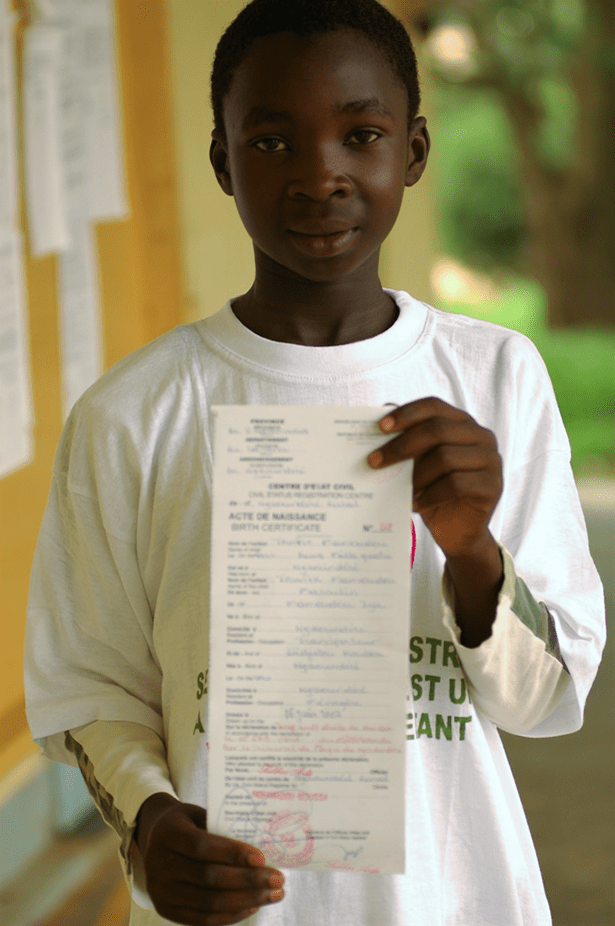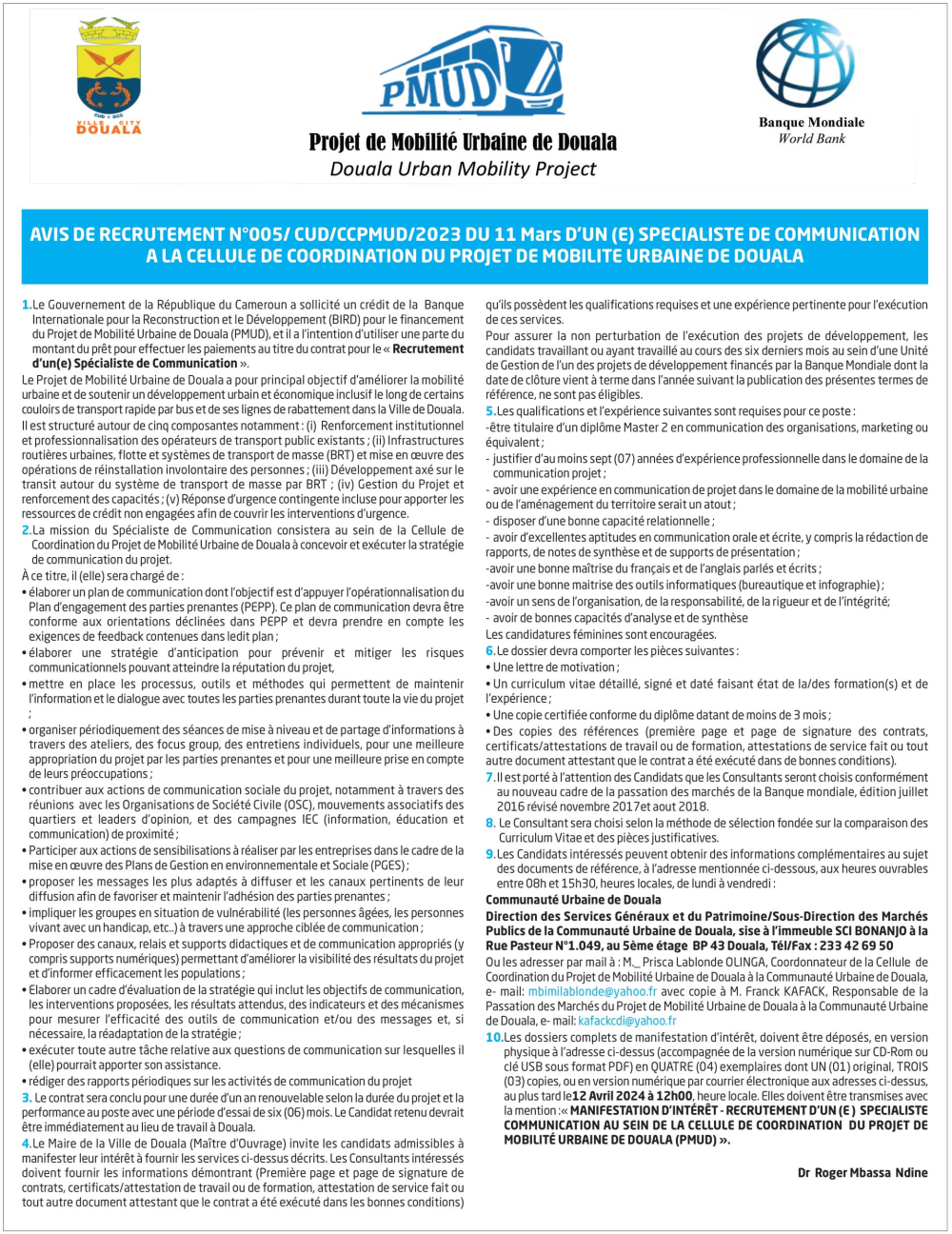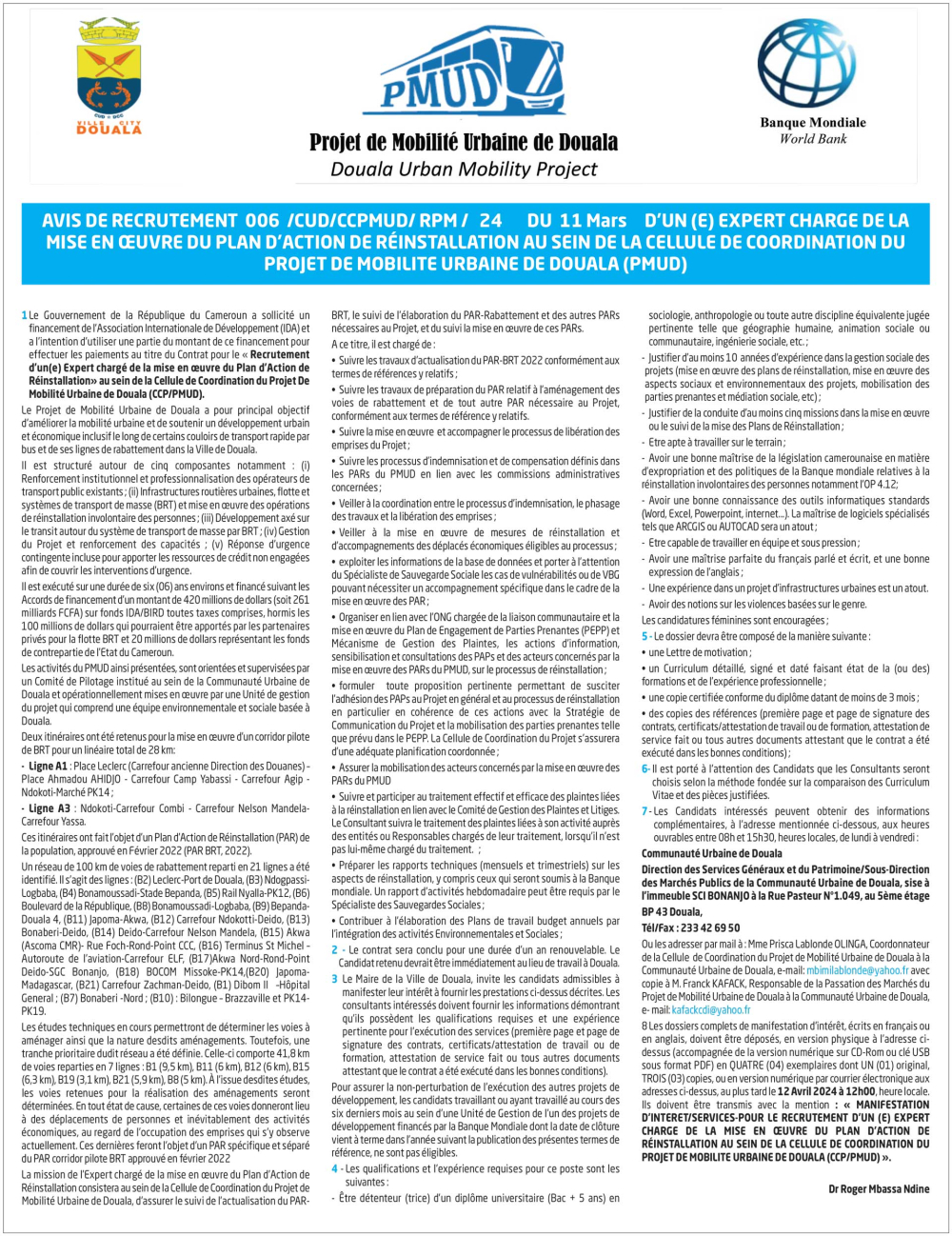Birth Registration : 166 Million Children Still “Invisible” Worldwide
- Par Kimeng Hilton
- 12 déc. 2019 12:59
- 0 Likes

Though the situation across the globe has improved by 20 per cent in the past 10 years, a quarter of the world’s children under five years still do not own birth certificates.
Cameroon’s 2014 Multi Indicator Cluster Surveys, MICS report indicates that the birth registration rate of children under five which had been declining continuously over the past 20 years, moving from 70 per cent in 2006 to 61 per cent in 2011 experienced a slight increase to 66 per cent in 2014 at the national level. This might have been as a result of the amendment in 2011 of the Law on Civil Status, which increased the legal timeline for birth registration from 30 to 90 days.
Worldwide, the number of children whose births are officially registered has increased significantly, yet 166 million children under five, or 1 in 4, remain unregistered, according to a report released by the United Nations Children’s Fund, UNICEF on December 11, 2019. Entitled, “Birth Registration For Every Child By 2030: Are We On Track?” it analyses data from 174 countries. It says the proportion of children under five registered globally is up by about 20 per cent from 10 years ago, after increasing from 63 per cent to 75 per cent.
“A child not registered at birth is invisible - non-existent in the eyes of the government or the law. Without proof of identity, children are often excluded from accessing education, healthcare and other vital services, and are vulnerable to exploitation and abuse,” warned UNICEF Executive Director, Henrietta Fore. Global progress in birth registration was largely driven by great strides in South Asia, particularly in Bangladesh, India and Nepal. But progress was also seen in West and Central Africa where under-five registration increased in 10 years from 41 per cent to 51 per cent - despite the multiple challenges that the region is facing.
In Africa’s most populous country, Nigeria, the proportion of children whose births are officially registered increased from 30 per cent in 2008 to 43 per cent in 2018, showing the value of integrating birth registration into health services. Francophone African countries such as Benin, Congo and Guinea Conakry have also made steady progress in improving national birth registration rates.
In Cameroon, a pilot birth registration project in Bétaré-Oya in the East Region and Mokolo in the Far North Region launched by UNICEF in partnership with the National Office in charge of Civil Registration, BUNEC, and with the financial support of the European Commission, has proven efficient. And needs to be scaled up to ensure that all children in Cameroon can benefit from the best practices and good lessons learned, notes the report.
Nevertheless, barriers to birth registration Cameroon remain....
Cet article complet est réservé aux abonnés
Déjà abonné ? Identifiez-vous >
Accédez en illimité à Cameroon Tribune Digital à partir de 26250 FCFA
Je M'abonne1 minute suffit pour vous abonner à Cameroon Tribune Digital !
- Votre numéro spécial cameroon-tribune en version numérique
- Des encarts
- Des appels d'offres exclusives
- D'avant-première (accès 24h avant la publication)
- Des éditions consultables sur tous supports (smartphone, tablettes, PC)
















Commentaires